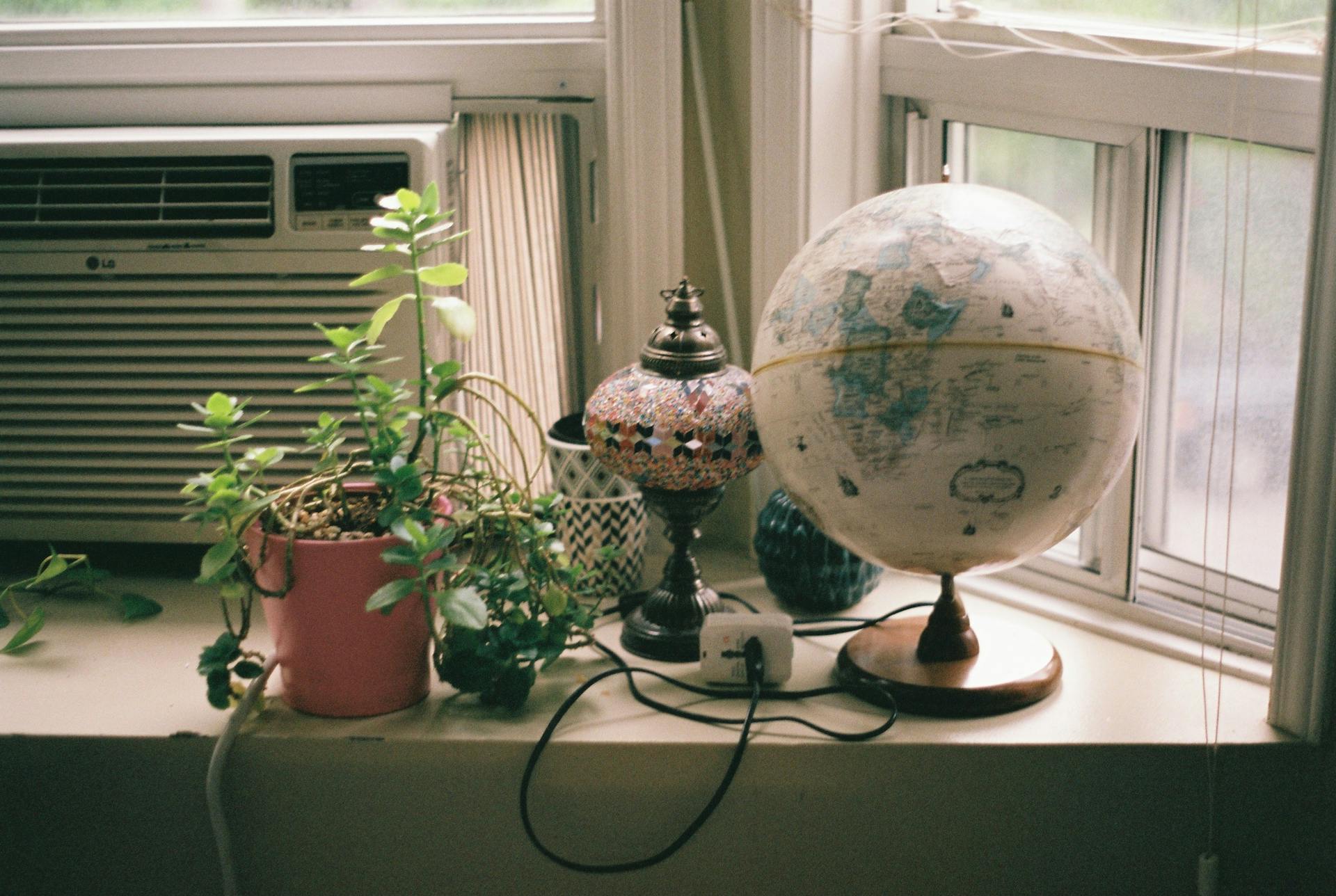
When the summer sun beats down, having a functional air conditioner can seem like a necessity. The bill to cool down your home, however, is not always so simple to sort out. To help you budget your money and make sure you don’t get left out in the heat, let’s look at what factors contribute to what it costs to run an air conditioner.
First off, the cost of electricity makes a large impact on how expensive running an air conditioner will be. The amount you pay for your electricity varies depending on where you live and which provider you use. For example, one state may charge significantly more in total fees and taxes than another does for the same amount of energy usage. This means that if you’re living in one area that charges high electricity bills compared to another, your air conditioning costs may be higher as well.
On top of that, certain types of air conditioners have their own variations in cost when it comes to running them. While all AC units draw power while they are being operated, some units utilize more electricity than others due to their design. A larger AC unit or one with enhanced features such as variable speed fan motors will likely guzzle up more power and also result in a higher electricity bill each month. That being said, remember that high-efficiency AC models come with special labels that indicate their energy usage for for comparison purposes - so make sure to always check for those when shopping around for an AC unit!
Finally, temperature settings can also play an important role in how much money your air conditioner will set you back each month. Keeping your thermostat at cooler temperatures often when using your AC means having its compressor work harder thereby using more energy and costing more money over time. This is why most experts recommend setting thermostats at higher temperatures during times of consistent use - making small changes like this could make a difference in both consumption levels and debit card statements!
The exact cost of running an air conditioner will depend largely on personal factors such as geographic location and models selected but by understanding which elements affect the total monthly bill you can gain a better handle on how much it costs - down to the last dollar!
Broaden your view: Spray Air Conditioner
How much electricity does an air conditioner use?
Air conditioning is a variety of home amenities that people of all ages have come to know and love over time. But have you ever asked yourself the fateful question – how much electricity does an air conditioner use?
The truth is, air conditioner electricity usage can vary depending on the size and age of the device. Larger, more up-to-date units tend to use less energy, while older or smaller models may require more energy to cool off a room. The United States Department of Energy estimates that an average household’s central air conditioner uses roughly 3400 kWh per year.
If you’re looking to maximize your energy efficiency and save on electricity costs, there are a few tips you can follow. Regularly change or wash your air filter when necessary can improve air flow and reduce strain on the AC unit – thus, decreasing energy consumption. Additionally, consider running your unit in the morning when temperatures are comparatively cooler outside as this can also reduce overall energy costs.
At the end of the day, there’s no single number that explains how much electricity an air conditioner uses – it all depends on the specifics of both your home and machine itself. By looking into those details carefully and utilizing some simple strategies to save energy, however, you can help ensure your current unit runs as efficiently as possible for years to come.
Expand your knowledge: Home Run Derby
What is the most efficient way to use an air conditioner to save money?
The world is constantly striving for a better, more efficient way to do things so why should your air conditioner be any different? Using an air conditioner efficiently can help save money on energy bills and increase its lifespan. Here are the most efficient ways to use an air conditioner to save money.
First, you’ll want to make sure that your unit is properly sized for the area you’re trying to cool. Too small of a unit won’t be able to keep up with the demand, or it might become too overworked and break down over time which would ends up costing lots of money in repairs. Look for one that’s specifically designed for its environment and consider energy ratings when making your selection.
It's also important to adjust the temperature of your thermostat in order to maximize efficiency. Try setting the thermostat between 78°F and 82°F, cooling no more than 6° per hour when using the air conditioner. To even further reduce costs have a pre-programmed thermostat installed as they will adjust themselves according to time of day or local temperatures while still maintaining a comfortable level of cooling that is not overly expensive.
Finally, take preventative measures by regularly checking and replacing your unit's filters on a monthly basis and routinely scheduling maintenance so that you can avoid potential costly repair bills down the line due to preventable problems.
In summary, taking advantage of proper sizing, temperature settings, thermostats, filters and regular maintenance are some of the best ways to save money while cooling off with an air conditioner during summertime heat waves. By following these suggestions you’ll rest assured knowing that you not only consumed energy efficiently but will also cut down costs as well!
For more insights, see: Who to Call When You Run Out of Gas?
What is the recommended temperature setting for air conditioners?
When it comes to finding the best temperature to set your air conditioner, there’s no single answer as it differs from person to person. What may be comfortable for one can easily be too cold for someone else. However, there are a few guidelines you can follow for optimal energy efficiency and climate comfort.
The U.S Department of Energy recommends setting your air conditioner to 78 degrees Fahrenheit when you’re home. This is considered the ideal energy saving temperature setting, as it ensures that you are comfortable while still allowing the unit to use less energy than if set lower. So try setting your air conditioner at 78 degrees when you’re in the house and then gradually turn up the temperature as you leave, especially if sustained periods of absence are expected.
It is also important to note that many people find temperatures slightly lower than 78 degrees too chilly for comfort indoors and as such consider 76 degrees to be a more suitable point of reference for people who enjoy cooler temperatures throughout the home or building. Therefore, if you find yourself feeling hotter at 78 degrees, you can easily drop the temperature down a couple of notches until you reach a temperature level that suits your needs but still helps bring down on electricity bills.
Setting your thermostat at an optimal number helps reduce stress on your air conditioning system while allowing you save money on electricity bills in turn – thus ensuring both greater comfort and efficient cooling inside your home or business premises without any worries about rising utility costs over time.
For another approach, see: Air Conditioner Reduce Humidity
How often should air filters be changed for optimal air conditioner performance?
Air conditioners play a vital role in providing comfort and peace of mind throughout the summer months. However, the effectiveness of any air conditioning unit is only as good as the maintenance it receives. One of the easiest, yet often overlooked parts of keeping your AC in top shape is changing your filters regularly.
So just how often should you change your AC filter? The answer depends on several factors including: frequency of use, size, filter type and whether you have pets or allergies. For example, if you live with pets that shed a lot of hair and fur, you’ll likely want to change the filter more often.On the other hand, for a homeowner without pets or allergies who only uses their air conditioner infrequently may be able to get away with changing their air filter every three months.
When it comes to achieving optimal air conditioner performance, most experts suggest replacing disposable air conditioner filters every one to three months as it will ensure maximum energy efficiency and optimal indoor air quality. If your AC filter is made out of reusable material such as cloth or metal then there's no definitive answer-you'll need to inspect it every month or two and simply give it a cleaning when necessary.
By following these guidelines, you can get the most out of your AC while reducing energy costs while also improving air quality in your home environment. So don't forget- when it comes time to turn on the A/C this summer, make sure you're up to date on all necessary maintenance and be sure to check those filters!
Additional reading: What to Wear When Running in Rain?
Are there any additional expenses to install an air conditioner?
An air conditioner is a great way to keep your home cool and comfortable during hot summer days. However, if you are considering installing one in your home, you should be aware that there may be some additional expenses involved depending on the type and size of the unit you choose.
First of all, you need to factor in installation costs. Most homeowners opt to hire professionals to install their air conditioners. The cost of this typically depends on the complexity of the installation and the labor rate of the installer - so prices can vary greatly. In addition to labor costs, you may need to purchase special tools or equipment for proper installation. Additionally, if ductwork is needed to install or adjust your unit, then ductwork supplies will require additional expense as well.
Secondly, operating costs could be an issue as larger systems take more energy to run than smaller ones. Therefore, your electricity bill can increase significantly once an air conditioner is installed – by as much as 10-15%. Most people want a bigger air conditioning unit since a bigger model can both cool home faster but also use more energy so try to look for energy saving solutions such as multi-speed fans, variable refrigerant flow systems or solar powered panels in order to offset this increase of electricity bills. It may be wise to invest in a higher efficiency rating system if you plan on using it frequently during warmer weather months.
In conclusion, installing an air conditioner can come with several additional expenses that go beyond just purchasing the unit itself. Make sure to research your options carefully before making any final decisions in order to avoid any unexpected fees or extra expenses down the line!
A different take: Increase Arm Strength
Sources
- https://www.cielowigle.com/blog/how-to-use-air-conditioner-effectively/
- https://householdair.com/what-is-the-best-temperature-to-set-your-air-conditioner-on/
- https://canadaenergysolution.ca/how-much-does-it-cost-to-install-air-conditioner-toronto/
- https://homeguides.sfgate.com/way-run-air-conditioner-51124.html
- https://news.energysage.com/how-many-watts-does-an-air-conditioner-use/
- https://www.acsisair.com.au/best-temperature-setting-air-conditioning/
- https://www.drhvac.ca/blog/best-ac-setting-for-coolness-and-energy-efficiency/
- https://thecomfortacademy.com/best-air-conditioner-temperature-for-sleeping/
- https://www.renewablewise.com/how-much-electricity-does-an-air-conditioner-use/
Featured Images: pexels.com


